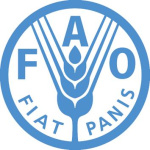- Industrie: Agriculture
- Number of terms: 87409
- Number of blossaries: 0
- Company Profile:
Established in October 1945 with the objective of eliminating hunger and improving nutrition and standards of living by increasing agricultural productivity, FAO coordinates the efforts of governments and technical agencies in programs for developing agriculture, forestry, fisheries, and land and ...
A hormone, produced by the anterior pituitary gland, that stimulates and controls lactation in mammals.
Industry:Biotechnology
A hormone, secreted by the mammalian pituitary gland, that stimulates protein synthesis and growth of the long bones in the legs and arms. It also promotes the breakdown and use of fats as an energy source, rather than glucose. Production of growth hormone is greatest during early life. Its secretion is controlled by the opposing actions of two hormones from the hypothalamus: somatocrinin (growth-hormone-releasing hormone), which promotes its release; and somatostatin (growth-hormone-inhibiting hormone), that inhibits the release of growth hormone from the anterior pituitary gland.
Industry:Biotechnology
A hormone-like substance that is secreted by an organism into the environment as a specific signal to another organism, usually of the same species.
Industry:Biotechnology
A hybrid cell, derived from a B (antibody producing) lymphocyte fused to a tumour cell, which grows indefinitely in tissue culture and is selected for the secretion of the specific antibody produced by that B cell.
Industry:Biotechnology
A hybrid gene created by joining portions of two different genes (to produce a new protein) or by joining a gene to a different promoter (to alter or regulate gene transcription).
Industry:Biotechnology
A hybrid resulting from the crossing of two genetically unlike individuals.
Industry:Biotechnology
A keto-pentose sugar (C<sub>5</sub>H<sub>11</sub>O<sub>5</sub>) that is involved in carbon dioxide fixation in photosynthesis.
Industry:Biotechnology
A labelled (tagged) segment of DNA that is able, after a DNA hybridization reaction, to detect a specific DNA sequence in a mixture of sequences. If the tagged sequence is complementary to any one in the mixture, the two sequences will form a double helix. This will be identified thanks to its label (either by radioactivity or fluorescence).
Industry:Biotechnology
A labelled DNA molecule used to detect complementary-sequence nucleic acid molecules by molecular hybridization. To localize the probe DNA sequence and reveal the complementary hybridization sequence, autoradiography or fluorescence is used.
Industry:Biotechnology
A large group of water soluble vitamins that function as co-enzymes, including thiamine (B<sub>1</sub>); riboflavin or vitamin G (B<sub>2</sub>); niacin or nicotinic acid (B<sub>3</sub>); pantothenic acid (B<sub>5</sub>); pyridoxine (B<sub>6</sub>); cyanocobalamin (B<sub>12</sub>); biotin or vitamin H; folic acid or vitamin M (Bc); inositol; choline; and others.
Industry:Biotechnology
